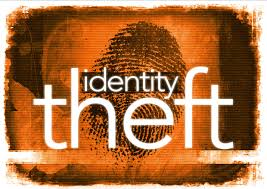The Most Common Ways Consumers Become Victims of Identity Theft
 Identity theft is quickly becoming a vice that is affecting many people worldwide. Each year, millions of consumers lose billions of dollars from identity theft cases. Unless consumers know how to better guard themselves against this vice, identity theft crimes will continue to increase. Let’s look at some of the ways consumers fall victim to identity theft and how to better protect your identity.
Identity theft is quickly becoming a vice that is affecting many people worldwide. Each year, millions of consumers lose billions of dollars from identity theft cases. Unless consumers know how to better guard themselves against this vice, identity theft crimes will continue to increase. Let’s look at some of the ways consumers fall victim to identity theft and how to better protect your identity.
How do criminals steal your identity?
While the following points cover some common ways thieves may steal your identity, they are not be exhaustive – we all know how endless human creativity and imagination can be when thieves want to steal something.
Trash: We’ve all heard of cases were dumpster divers go through trash to find information from financial statements and bills. If identity thieves get enough personal information (like your name, account number, address and bank name), they may use it to assume your identity and even open a bank account.
Phishing: Cyber criminals send emails to unsuspecting consumers pretending to be financial institutions to capture personal information for fraudulent use. The emails are meant to entice the consumer to provide their identification details to get “special” deal. These “special” or “one time” deals are usually too good to be true.
Outright theft: Less sophisticated thieves will pickpocket or steal your purse – the smash and grab approach and use the information gathered to carry out identity theft. Don’t forget the white collar criminals that steal employee personal information from company records.
Conning: Smooth taking criminals may pretend to be bank representatives and call you. If you do not detect the scam, you may end up providing the thief with all your crucial banking information. There are also cases where thieves call a bank pretending to be you to get your information from the bank.
Spyware: Cyber criminals can install spyware on your computer or mobile phone with the aim of gathering personal information. With computers and mobile phone, criminals monitor your internet activity especially when you are making purchases or log-in into your bank account. Additionally, criminals can listen to your phone calls.
Tips for avoiding identity theft
- Apply to some of the best legit online identity theft protection programs available on the internet. These programs notify you of any suspicious activity carried out using your personal information. One of these programs is CreditSesame.com.
- Use a credit card for purchases. Don’t get me wrong, debit cards are great, but major credit card providers offer 0% liability in case some uses your card to run up charges. This means that if a thief steals your identity and uses it to get a credit card – and then uses it to buy stuff – you won’t be under any obligation to pay for the charges.
- Make sure you shred all important documents before throwing them in the trash.
- Avoid all suspicious looking mail and websites that ask for your personal information – only fill in your personal information on official and secure websites.
- Monitor your credit report at least once every 24 hours. You also have the option to lock the credit report so that any unauthorized people (like identity thieves) cannot use it to open new accounts.
- Limit as much as possible giving your personal information over the phone.
While the above are some of the common ways that consumers become victims of identity theft, there are many other ways that are not discussed. The most important thing is to make sure that you keep your personal and financial information safe. You should also make sure that you frequently monitor your financial accounts and credit reports.
Category: Identity Theft





